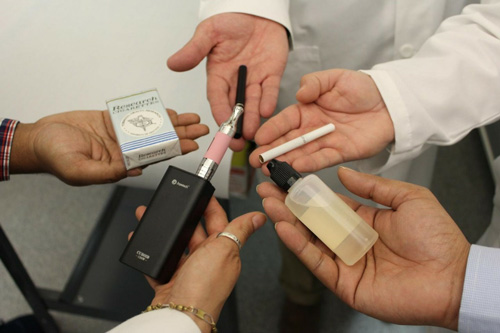A review suggests smoking and vaping could increase the severity of Covid-19 due to blood vessel damage and a higher risk of stroke.
“There is a growing body of evidence to suggest that, as well as the respiratory symptoms of Covid-19, the disease can also cause, among others, neurological effects.”
A recent report from a neurological hospital identifies cases of delirium, brain inflammation, nerve damage, and stroke in Covid-19 patients.
Reports of stroke in Covid-19 are particularly prevalent. Some reports estimate that 30% of critically ill Covid-19 patients experience blood clots. And if they occur in the brain, they may trigger a stroke.
Smoking causes well-known damage to the lungs and respiratory system. Previous research has shown that it also makes a person more vulnerable to influenza.
Smoking can also affect the vascular system in the brain, prompting the researchers to review the evidence on how this activity might influence the neurological symptoms of people who contract Covid-19. They first looked at the evidence on SARS-CoV-2 and neurological disorders, including stroke. They found one study which showed that 36.4% of Covid-19 patients had neurological symptoms. Another paper found five cases of sudden stroke in Covid-19 patients aged 30–40 years due to abnormal blood clotting in their large arteries.
But how does this relate to smoking? The researchers explain that when the body is deprived of oxygen, which occurs with smoking, the amount of clotting factors in the blood increase.
In combination with Covid-19, which also increases blood-clotting proteins, the risk of stroke rises.
GENETICS AND CARDIOVASCULAR HEALTH MAY CONTRIBUTE TO DEMENTIA RISK: A new study has found that genetics and cardiovascular health can combine to increase the risk of developing dementia. Based on this, the authors suggest that people can mitigate some of the effects of their genes by improving their cardiovascular health. New research has found that cardiovascular health and genetics can jointly increase the risk of dementia. The research suggests that even if someone is genetically predisposed to develop dementia, maintaining good cardiovascular health can help reduce this risk.
As it becomes moderate or severe, it can result in changes in personality, a failure to recognize family or friends, and an almost complete dependence on others for basic life activities.










